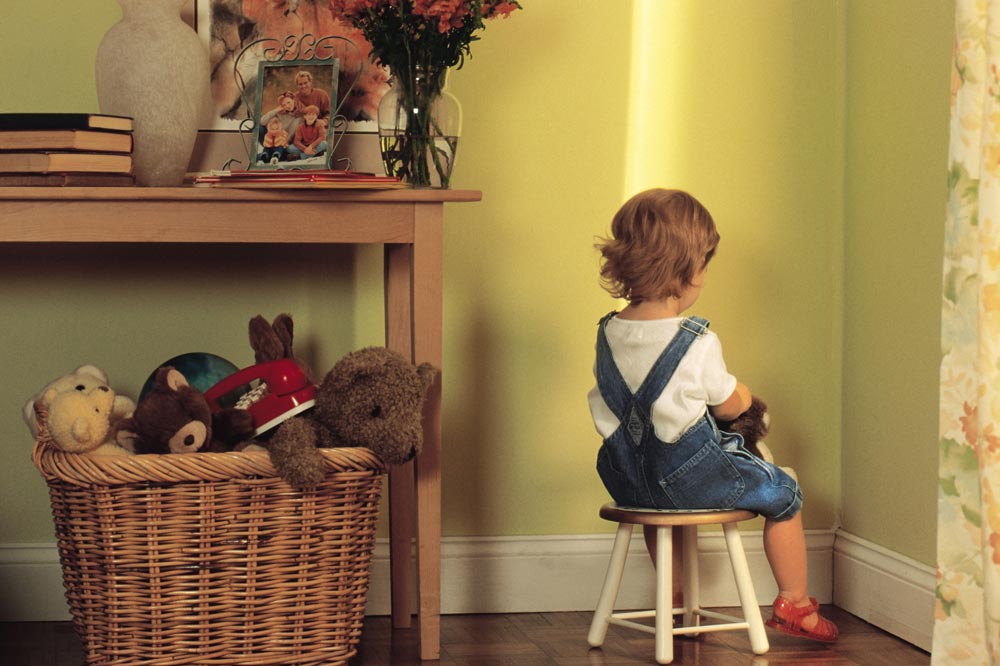
Consider the following story as it relates to this week’s topic.
I met with my friend Mary recently and she mentioned that she and her husband had just had a disagreement. They were discussing their views on discipline and she said she’d never lay a finger on her baby girl, but her husband thought light spanking would be okay if she misbehaved. Mary believes corporal punishment could affect a child and brought up many good points. Is there a better way to discipline kids?
Almost all children act up when they’re young, and many have probably been spanked as a result. But in recent years, corporal punishment has become increasingly controversial, with various organizations and individuals speaking out against it and offering more beneficial alternatives to correcting behavior.
Our licensed psychologists and mental health counselors want to share some insight on the topic.
What the Experts Say

According to a policy statement just released by the American Academy of Pediatrics (AAP), research produced over the last few years overwhelmingly indicates that parents should never hit their children or verbally insult them.
Dr. Robert Sege, the first author of the policy statement and pediatrician at the Floating Hospital for Children at Tufts Medical Center in Boston, additionally said the policy encourages pediatricians to share data with parents regarding the different types of discipline that they can choose from.
The statement revealed that several studies have found links between spankings and:
- Aggressive child behavior
- Depressive symptoms in teenagers
- Reduced gray matter in children’s brains

While the policy’s findings are impactful, professionals such as Dr. Rebecca Ryan, a developmental psychologist and associate professor at Georgetown University, says it’s still difficult to assess whether spankings actually cause children to be more aggressive later in life.
In research, we are always cautioned that “correlation does not equal causation,” meaning that just because two things are associated, like spanking and later aggressive behavior, it doesn’t mean that the spanking causes the aggression. Other factors could be contributing to the child behaving aggressively that are completely separate from how the child was disciplined.
However, she also says that “it’s also true that spanking is correlated with an increase in behavior problems over time among children with similar levels of misbehavior relative to nonphysical forms of discipline.”
It’s important that your children know when you see them do good. Click To TweetThe Alternative

Life is filled with opportunities to teach your child right and wrong through “discipline.” Click To TweetLife is filled with opportunities to teach your child right and wrong through “discipline.” We believe that the purpose of discipline is to protect kids from danger and teach them how to become self-disciplined adults.
When life presents opportunities to discipline your child, we want you to have as many tools as possible in your parenting toolbox. Please remember that there are many options more effective and actually beneficial than spanking.
Set some rules in your home for your children to follow. Click To TweetAccording to the AAP, you can:
- Show and Tell – Teach your kids important lessons in “right and wrong” with calm words and leading by example.
- Set Rules – Set some rules in your home for your children to follow. Explain them in terms they’ll understand and post them somewhere visible to all.
- Set Consequences – Make sure your children know what happens if they don’t follow rules. For example, you can shut the television off if your kids refuse to stop yelling indoors. Say what you mean and mean what you say with your kids.
- Listen – Sometimes children misbehave for specific reasons. Find out why by hearing them out.
- Give Attention – One of the best ways to reinforce good behavior and discourage the bad is to give your children your full attention when they are behaving appropriately.
- Notice the Good – It’s important that your children know when you see them do good. When they do, congratulate them, thank them or even just give them a wink of acknowledgement.
- Not Respond (When Possible) – Sometimes your children need to learn lessons on their own. If your child is purposely throwing toys under the couch even if you said no, eventually they’ll run out of toys and realize their mistake.
- Be Ready – If you know that you’re headed toward a situation where your child will surely not behave, be sure to prepare.
- Redirection – Your child may be misbehaving because he/she is bored. If that’s the case, find something for them to do.
- Use Timeout – Perhaps one of the most effective tools around, calling a timeout when your child is warned can be greatly beneficial. You can even let them determine how long they’ll be timed out by telling them they can rejoin once they feel ready.
Let Us Help You
Sometimes it’s hard to understand why exactly your child is acting out and misbehaving. If you’ve tried everything to get them to be good, perhaps it’s time for a professional to help. At Rice Psychology Group, we understand how important your children are, which is why we’re fully committed to helping you find the best way to deal with your issue. To set an appointment, contact us in Tampa today.

